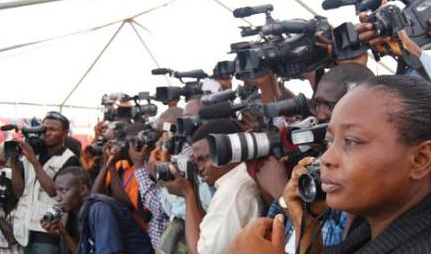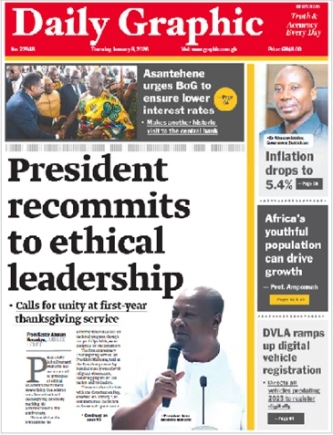
Journalism and professionalism, where does Ghana stand?
In our line of duty as journalists, we are mostly faced with the challenges of doing what is right. We are either forced to work within our ethics or we do otherwise. As a journalist, who are you accountable to? Is it your editor, your sources, or the audience who you serve?
Most of us have to come to terms with practising good journalism or facing the music. Journalists need to notice that the dissemination of news stories needs to be fit for public consumption.
Why the need for professionalism?
Few days ago, Kenya passed a new law to punish newsmakers who publish “false information”. A report by BBC news states that the law criminalises “unauthorised interference” with a computer system.
This law is as a result of some lawmakers complaining of cyber bullying. Perpetrators, according to the law, may face huge fines and a minimum jail term of one year.
Following the report, critics say the law is an infringement on the rights of newsmakers. What should be our concern, however, is whether newsmakers are doing the right thing. Ghanaian journalists, for instance, are guided by a code of ethics. The ethics include reporting truth at all times, not plagiarising because it is unethical and illegal, protecting confidential sources of information, verifying the source of every information, among other such principles. There is, therefore, the need to uphold these ethics in order to bring sanity into the profession.
Unprofessionalism
Accepting "soli" is one of the biggest acts of unprofessionalism by some journalists. Speaking to the News Editor of Adom FM, Mr Samuel Nii Narku, he mentioned that journalists who take money, that is “soli,” are not doing the profession any good.
According to him, this influences news reportage, as the journalist feels indebted to the party that gives the “soli”. He also stated that embellishment and adding one’s opinion to the news was a bad practice that many media personnel were guilty of.
Other unprofessional acts would include plagiarism, that is when a journalist copies the exact words of other news portals and uses them as his or her own without citing the source. We see a lot of these in mainstream media, which is very appalling. It really speaks foul of our industry and must be checked.
Lessons for media personnel Media
Personnel here include all persons who distribute news in any form through any media outlet such as presenters, editors, bloggers, newscasters and what have you.
It is important that you always take time to learn the challenges of the profession so that you can change it. It is obvious that a lot of people who are not even aware of the ethics or who have no journalism training are parading themselves as journalists. It is, therefore, important to do the right thing so that we will stand out.
Professional journalists do not fall into trouble with individuals, organisations and the court because they gather and cross-check information from the right sources.
Final words
Just as the libertarian theory of the press says: When all ideas are put before the public, the public will choose the best from the marketplace. Truth is great and will prevail if left to itself.
When asked to speak to the issue, here is what Alfred Nene Ocansey of TV3 had to say: “Generally, journalistic standards in Ghana are improving and we are on a progressive course.”

 Click the link to read your copy.
Click the link to read your copy.